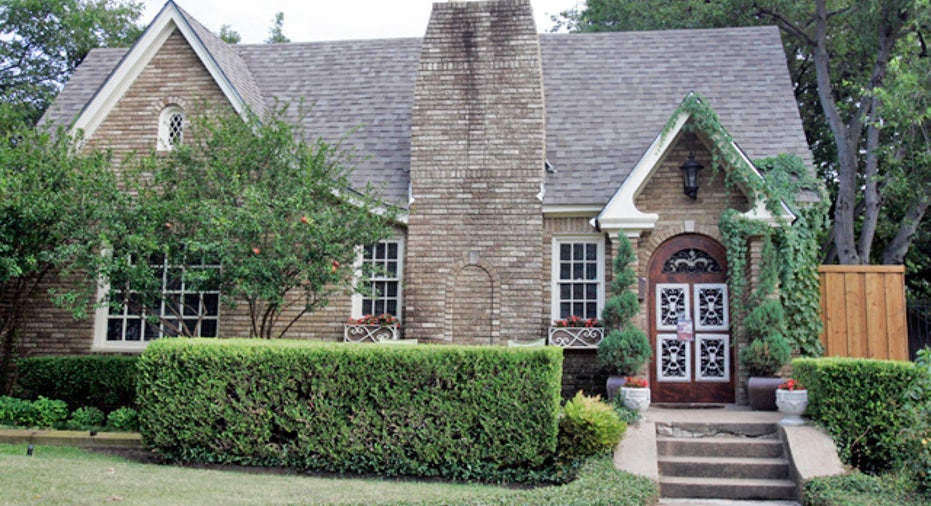How Missed Insurance Payments Put Home at Risk

If you have a reverse mortgage, don't forget to pay your taxes and home insurance or you could face serious consequences, including the threat of foreclosure.
You may assume that a reverse mortgage keeps your lender from foreclosing on your property. After all, reverse mortgages do not require monthly payments and are repaid only when the home is sold or after you die.
However, a reverse mortgage - also known as a home equity conversion mortgage (HECM) - does not release you from the obligation to pay your property taxes and home insurance premiums. Failure to meet such obligations can put your home at risk.
And it can be easy to forget to make these payments. Unlike a traditional mortgage, a reverse mortgage does not offer the option of an escrow account from which taxes and insurance are paid automatically, says Steve Irwin, executive vice president of the National Reverse Mortgage Lenders Association (NRMLA).
If you have a reverse mortgage, you still can opt for a "set-aside" account from which your lender pays these obligations. However, less than 2% of all reverse mortgage borrowers do so, Irwin says.
People with reverse mortgages typically don't use the set-aside option because doing so reduces the amount of money available to them to pay for other expenses, Irwin says.
"And it can be difficult to determine how much to set aside since no one knows exactly how long the reverse mortgage will be in place," he says.
Proof of home insurance
If you opt for a reverse mortgage, you must provide proof of homeowners insurance - such as a copy of the declarations page - during the settlement process, says Russell Rothstein, reverse mortgage division manager for Graystone Mortgage in Rockville, Md. You'll also be required to provide proof of continued insurance coverage each year thereafter.
If you fail to provide proof of insurance, the loan servicer will issue "force-placed insurance" that covers the cost to rebuild the property, but not the contents, finishes or fixtures inside the home, Rothstein says. Such coverage typically costs three times as much as regular home insurance, he says.
"Force-placed insurance will be paid from the reverse mortgage line of credit if there are proceeds still available," says Rothstein. "If the loan is a lump-sum, fixed-rate reverse mortgage, then the lender will pay the insurance premiums on the force-placed insurance and continue to contact the borrower for reimbursement."
If you fail to reimburse the lender, your home could be at risk of foreclosure. Irwin says that if the lender, rather than the homeowner, is paying the taxes and insurance, the loan is technically in default.
The Federal Housing Administration (FHA) division of the Department of Housing and Urban Development (HUD) guarantees the majority of reverse mortgage loans. Under HUD rules, the lender must go to HUD to request a default.
"Historically, HUD has been reluctant to call the loan on elderly borrowers, so typically these loans are given a 'pending' status rather than a yes or no answer on whether the lender can foreclose on the borrower, says Irwin.
A pending status means that the homeowners can stay in their home but face uncertainty as to when or whether HUD may begin foreclosure proceedings.
HUD guidelines say that before foreclosing, lenders must offer loss-mitigation options to homeowners such as:
*A repayment plan
*Allowing the homeowner to contact a HUD-approved housing counseling agency for free assistance
*Refinancing to a new reverse mortgage if there is enough equity available to pay off the current reverse mortgage as well as the late payments
Lenders have to allow at least 24 months to work out a repayment plan with you before any foreclosure steps can be taken. If none of the loss-mitigation efforts works, HUD may decide to allow lenders to move the status from pending to actual foreclosure.
Or, HUD may allow the homeowners to stay until they die or sell the house, with the loan servicer continuing to pay the insurance bill and hoping to be reimbursed through proceeds from the home sale.
Avoiding reverse mortgage delinquency
Rothstein says that Reverse Mortgage Insight magazine reports that approximately 5% of all reverse mortgage borrowers currently are delinquent on property taxes, home insurance or both.
What should you do if you're concerned that you may begin missing tax or insurance payments?
"Borrowers who are running out of money should contact their loan servicer immediately to see if they can work out an arrangement to pay their insurance and tax bills," says Rothstein.
He says most reverse mortgage borrowers still have some equity in their homes. For those who are in financial trouble and have few options, "this may be the point when they need to consider selling the property if no other arrangement is possible."
Irwin says help is available if you're struggling financially. NRMLA and the National Council on Aging (NCOA) offer counseling for seniors with reverse mortgages and can help identify local programs that offer tax and home insurance payment assistance.
"Eventually there will be a database of resources on a national level to support reverse mortgage borrowers," says Irwin. "Right now, the best option for seniors is to contact their loan servicer or a HUD counselor to find out about local options for assistance."
The original article can be found at Insurance.com:How missed insurance payments put home at risk



















